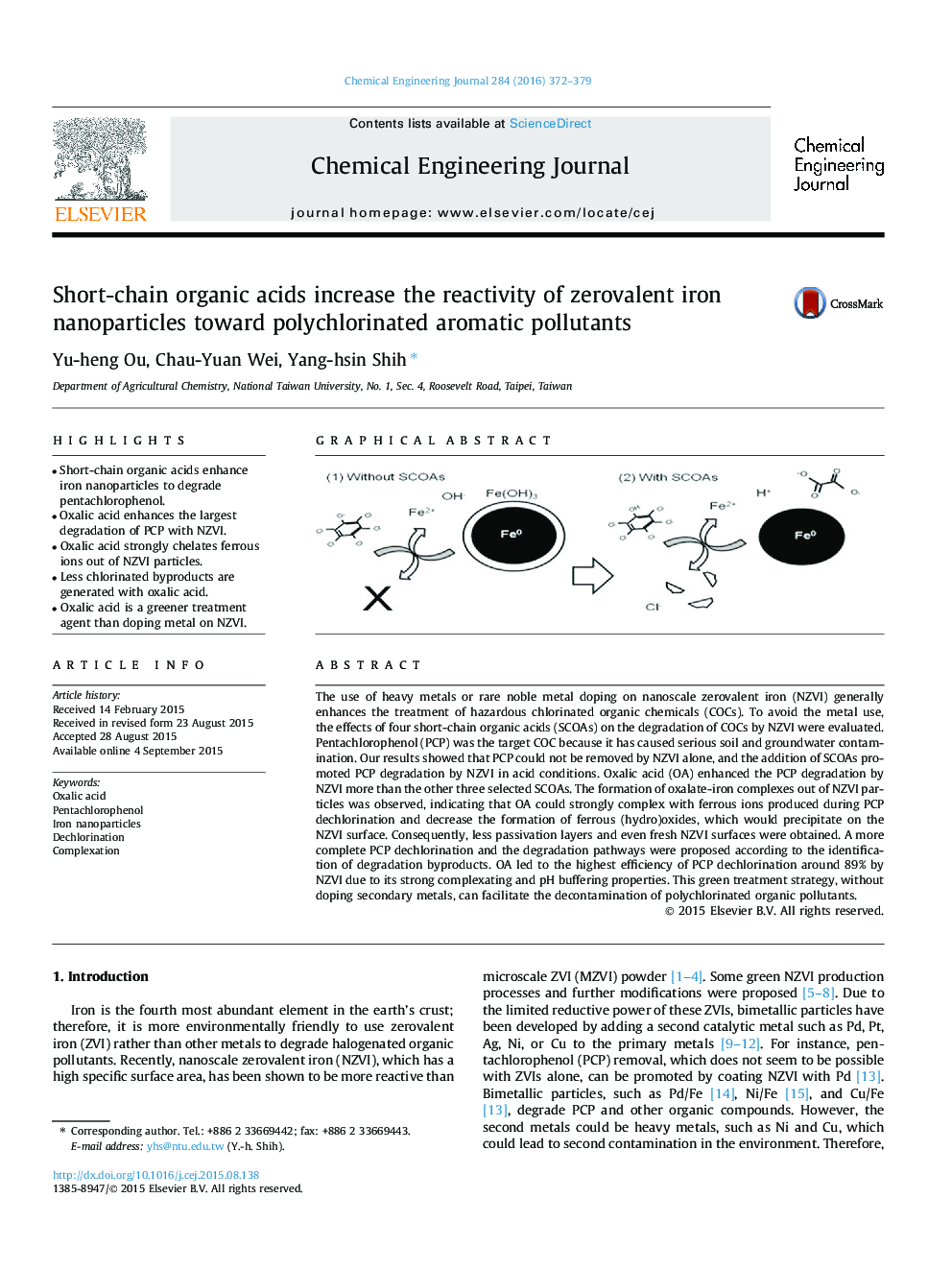| کد مقاله | کد نشریه | سال انتشار | مقاله انگلیسی | نسخه تمام متن |
|---|---|---|---|---|
| 145974 | 456356 | 2016 | 8 صفحه PDF | دانلود رایگان |
• Short-chain organic acids enhance iron nanoparticles to degrade pentachlorophenol.
• Oxalic acid enhances the largest degradation of PCP with NZVI.
• Oxalic acid strongly chelates ferrous ions out of NZVI particles.
• Less chlorinated byproducts are generated with oxalic acid.
• Oxalic acid is a greener treatment agent than doping metal on NZVI.
The use of heavy metals or rare noble metal doping on nanoscale zerovalent iron (NZVI) generally enhances the treatment of hazardous chlorinated organic chemicals (COCs). To avoid the metal use, the effects of four short-chain organic acids (SCOAs) on the degradation of COCs by NZVI were evaluated. Pentachlorophenol (PCP) was the target COC because it has caused serious soil and groundwater contamination. Our results showed that PCP could not be removed by NZVI alone, and the addition of SCOAs promoted PCP degradation by NZVI in acid conditions. Oxalic acid (OA) enhanced the PCP degradation by NZVI more than the other three selected SCOAs. The formation of oxalate-iron complexes out of NZVI particles was observed, indicating that OA could strongly complex with ferrous ions produced during PCP dechlorination and decrease the formation of ferrous (hydro)oxides, which would precipitate on the NZVI surface. Consequently, less passivation layers and even fresh NZVI surfaces were obtained. A more complete PCP dechlorination and the degradation pathways were proposed according to the identification of degradation byproducts. OA led to the highest efficiency of PCP dechlorination around 89% by NZVI due to its strong complexating and pH buffering properties. This green treatment strategy, without doping secondary metals, can facilitate the decontamination of polychlorinated organic pollutants.
Figure optionsDownload as PowerPoint slide
Journal: Chemical Engineering Journal - Volume 284, 15 January 2016, Pages 372–379
